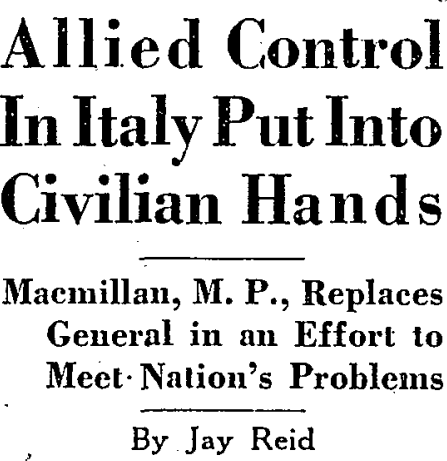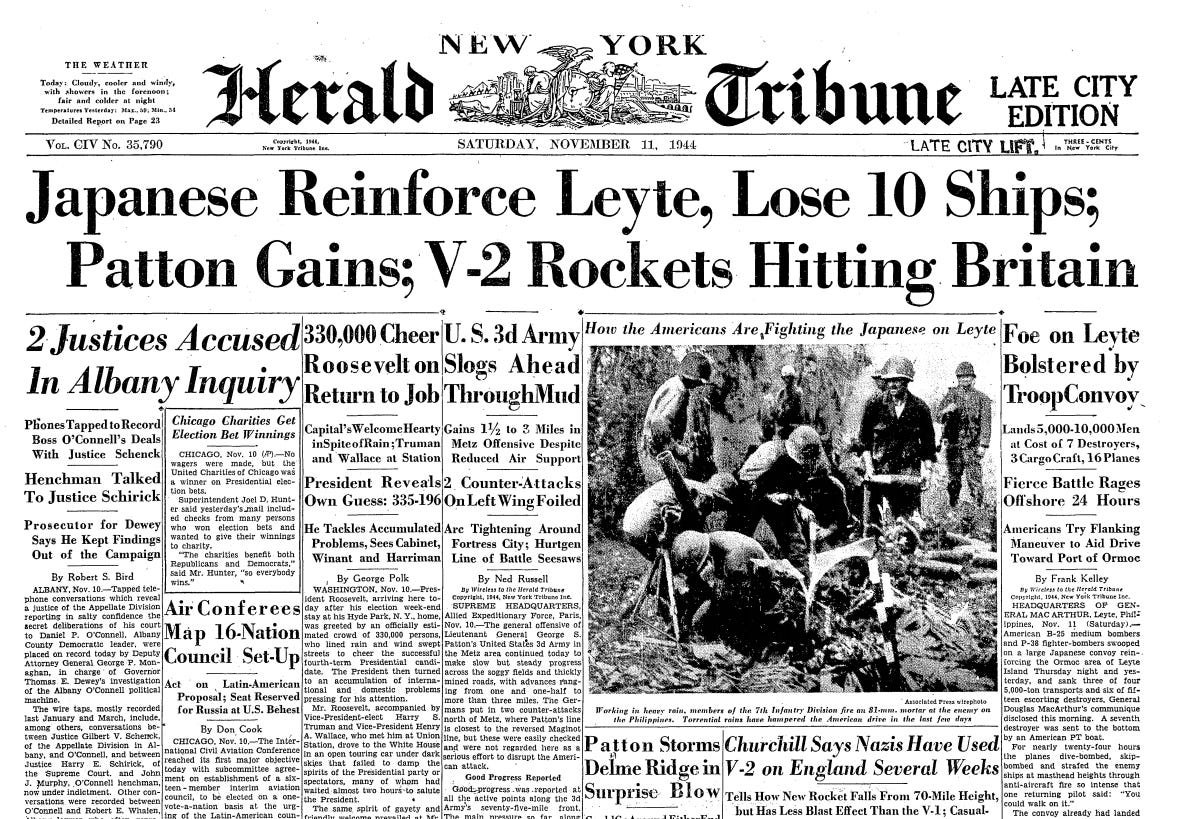Jay's Portfolio: Allied Control In Italy Put Into Civilian Hands
Macmillan, M.P. Replaces General in an Effort to Meet Nation's Problems
New York Herald Tribune
November 10, 1944
By Jay Reid
After months of covering labor disputes in the United States, the re-election of President Franklin Roosevelt moved that issue off the front burner, allowing Jay to shift his reporting over to the war.
As front page articles go, this is a strange one. It feels like Jay wrote a much longer article that got chopped down to size due to space limitations.
Of all his front page articles to date, this is by far the shortest.
The major news Jay reports is that future British Prime Minister Harold Macmillan would have a go at administering Italy, after the decision was made to shift from military to civilian control.
Jay reports that at the time, diplomatic circles viewed Macmillan as a reactionary in British politics, a description somewhat divorced from the staid image he presented 13 years later when he succeeded Anthony Eden in the wake of the Suez crisis.
Macmillan, who was reported to have had a pretty good wit to him, nonetheless lived in great pain for most of his adult life due to the major injuries he suffered during World War I.
His appointment in Italy was viewed as supportive of the Italian monarchy, which had been closely associated with the previous fascist government led by Benito Mussolini.
Arguments that Italian politics needed to move to the left failed to carry the day. A few years after the war ended, one of the CIA’s first big wins would come via its covert efforts to prevent the communists from taking power.
Elsewhere in the world, Germany’s V-2 rockets were becoming an issue in Great Britain.
Although they had not caused much serious damage, their continued strikes on London were taking a psychological toll on the city’s populace.
Page three featured dispatches noting that momentum was increasing behind calls for the formation of the United Nations organization.
Also of note was a report about Roosevelt announcing an upcoming meeting of the Big 3 allied leaders, which comprised, in addition to FDR, British Prime Minister Winston Churchill and Joseph Stalin, General Secretary of the Communist Party of the Soviet Union.
This meeting would ultimately take place at Yalta, in Crimea, USSR, from February 4-11, 1945.



